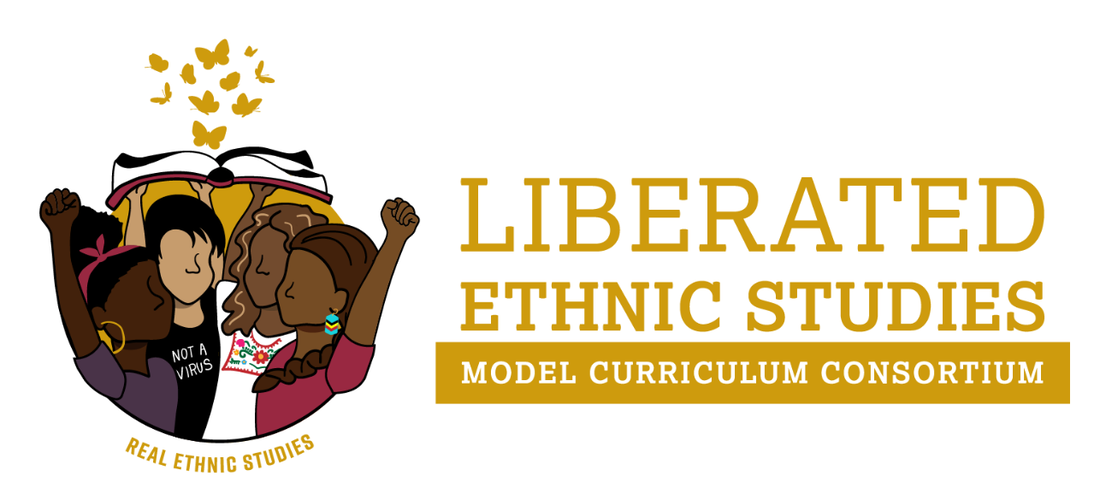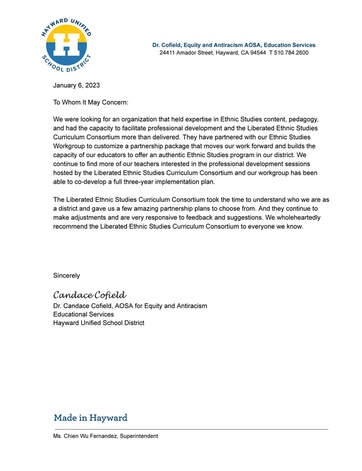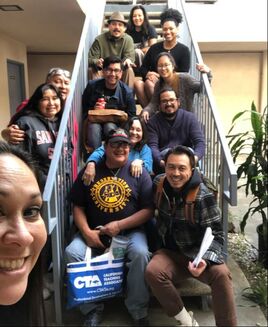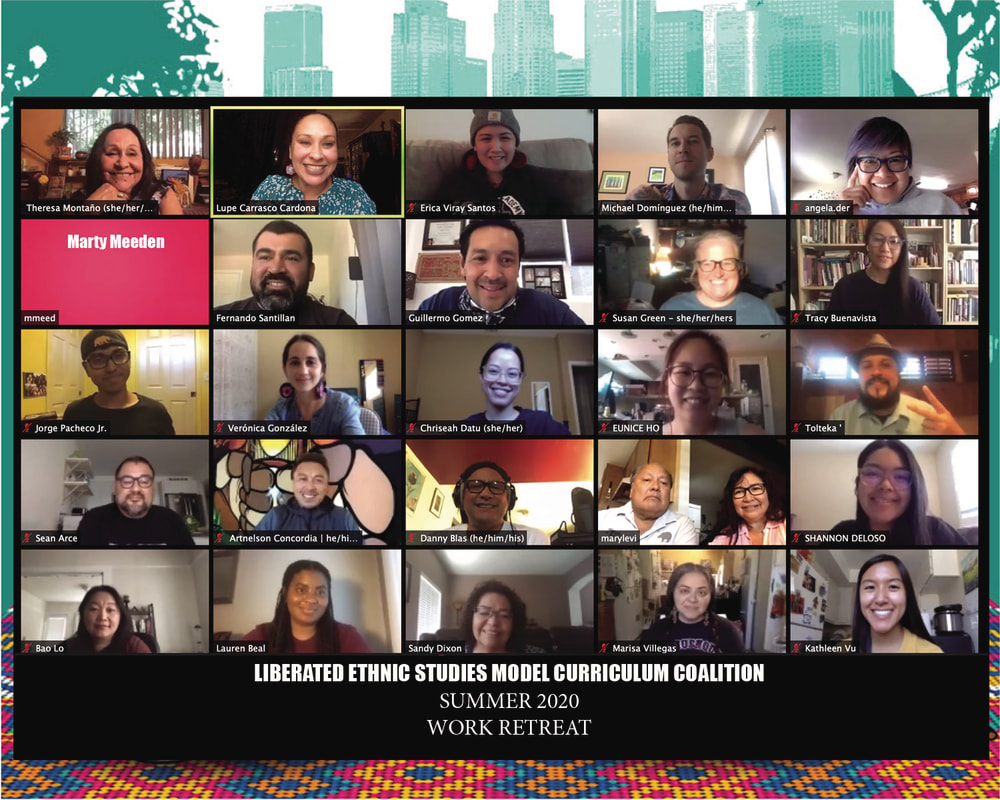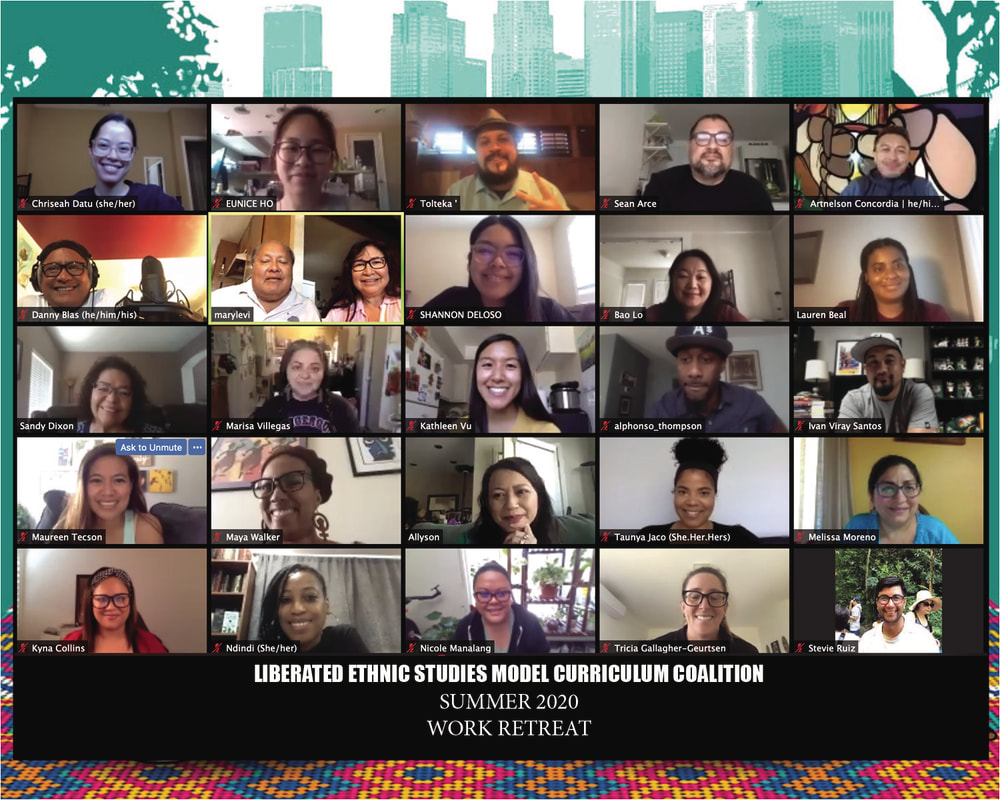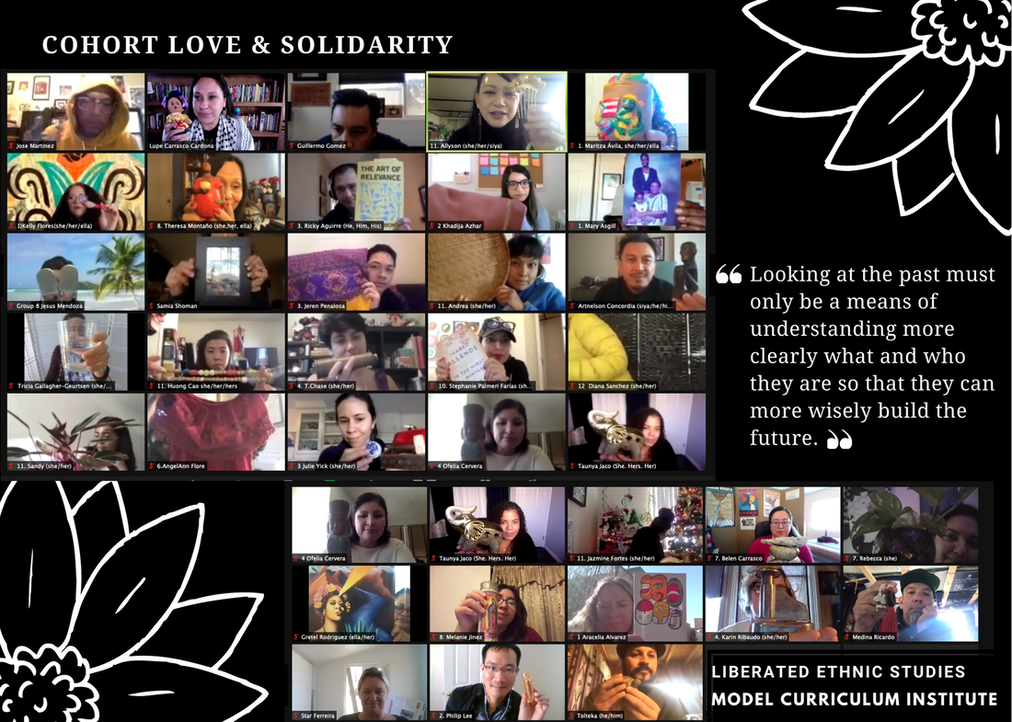How LESMC supports districts
Glossary Term Defined: WHITE PRIVILEGE
Liberated Ethnic Studies Model Curriculum Institute (LESMC)
The LESMC purpose is to promote the advancement and implementation of well designed Ethnic Studies courses and programs for the purpose of advancing students’ academic achievement, educational equity, community activist scholarship, and community leadership skills.
We will accomplish our vision by:
|
Self-IdentityEthnic Studies units will include lesson plans that center students in their self-identity.
1. cultivate empathy, community actualization, cultural perpetuity, self-worth, self-determination, and the holistic well-being of all participants, especially Native People/s and people of color; 3. center and place high value on pre-colonial, ancestral, indigenous, diasporic, familial, and marginalized knowledge; Systems-OppressionStudents will explore and analyze systems of oppression to be able to imagine a better world.
4. critique empire and its relationship to white supremacy, racism, patriarchy, cisheteropatriarchy, capitalism, ableism, anthropocentrism, and other forms of power and oppression at the intersections of our society; 5. challenge imperialist/colonial hegemonic beliefs and practices on the ideological, institutional, interpersonal, and internalized levels; Solidarity-TransformativeSolidarity between the racialized ethnic groups and allies.
7. conceptualize, imagine, and build new possibilities for post-imperial life that promotes collective narratives of transformative resistance, critical hope, and radical healing. |
Social Movements-ResistanceStudents will learn the history of social movements in their communities, in California, the United States and Internationally.
6. connect ourselves to past and contemporary resistance movements that struggle for social justice on the global and local levels to ensure a truer democracy; Stories- Community Narratives
The community and counter-narrative auto-ethnographical stories will be fostered as part of the LESMC.
2. celebrate and honor Native People/s of the land and communities of color by providing a space to share their stories of struggle and resistance, along with their intellectual and cultural wealth; |
White Privilege is your history being part of the core curriculum and mine being taught as an elective.
